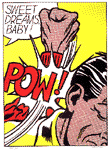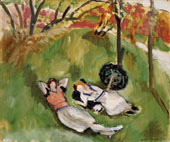Mixtape Marathon |
|

"In vacant or in pensive mood..." I am: Bekah; 24; Law Student / Favorite Things: Carbs (so there!), Johnny Damon, Smiling at babies, Grilled cheese, Comfortable silence / Favorite Supreme Court Justice: Brennan / Favorite Wilson: Owen by an inch / Today's Special: Song: Elliott Smith, "Bled White"; Quote: "You know, there's like a butt-load of gangs at this school. This one gang kept wanting me to join because I'm pretty good with a bowstaff." Please love me: mmbekah@yahoo.com 
February 2003 March 2003 April 2003 May 2003 June 2003 July 2003 August 2003 September 2003 October 2003 November 2003 December 2003 January 2004 February 2004 March 2004 April 2004 May 2004 June 2004 July 2004 August 2004 September 2004 October 2004 November 2004 December 2004 January 2005 September 2005 |
Wednesday, June 18, 2003
Two Reasons Why I’m Going to Become a Public Defender (Warning: I Do Take Some Things Very Seriously) 1. Attitudes Like This: “No doubt grand juries err and indictments are calamities to honest men, but we must work with human beings and we can correct such errors only at too large a price. Our dangers do not lie in too little tenderness to the accused. Our procedure has been always haunted by the ghost of the innocent man convicted. It is an unreal dream. What we need to fear is the archaic formalism and the watery sentiment that obstructs, delays, and defeats the prosecution of a crime.” – Judge Learned Hand, United States v. Garsson, 1923. This is a dangerous and unrealistic view of the criminal “justice” system. In America, we pride ourselves on valuing the rights of the individual. We consider ourselves civilized because, before putting someone in prison, we are supposed to guarantee that the government has proven his guilt beyond a reasonable doubt. Given the dangers of over-zealous prosecution, biased judges, adulterated evidence, corrupt cops, and mistaken witnesses (the figures on this last group are astounding), I firmly believe that it is much more important for us to protect individuals than it is to make sure every guilty person rots in jail. There was no excuse for Judge Hand’s belief in the infallibility of our justice system in 1923, and there is even less of an excuse for it now. If you have not done so already, please visit The Innocence Project’s website. The Innocence Project is a group of lawyers who use DNA and other types of evidence to exonerate innocent prisoners. 131 actually innocent people have been exonerated thus far. “Actually innocent” means that it can be conclusively proven that the convicted person did not commit the crime. Read Actual Innocence by Barry Scheck, Peter Neufeld, and Jim Dwyer for some horrifying instances of wrongful convictions, often resulting in decades of unjust imprisonment. According to Judge Hand, to fear conviction of the actually innocent is “archaic formalism” and “watery sentiment”—an “unreal dream.” He couldn’t be more wrong. It’s not an unreal dream. It’s a nightmare. And “the ghost of the innocent man convicted” should haunt us all. Update: Turns out, I'm in good company: "We have to choose, and for my part I think it a less evil that some criminals should escape than that the government should play an ignoble part." --Oliver Wendell Holmes. Elementary, my dear Holmes. 2. Judges Like This: “This is one of the worst crimes that a person can commit. I just get so disgusted that I just figure what is the use? You are just an animal…I don't know why your parents haven't been able to teach you anything or train you. Mexican people…after 13 years of age, its perfectly all right to go and act like an animal…We ought to send you out of the country--send you back to Mexico. Maybe Hitler was right.” – Santa Clara County Superior Court Judge Gerald S. Chargin, addressing a young Mexican-American he convicted of having sexual relations with his stepsister. Cited in: Sambhav N. Sankar, Disciplining the Professional Judge, 88 Cal. L. Rev. 1233 (2000). Res ipsa loquitur. |

